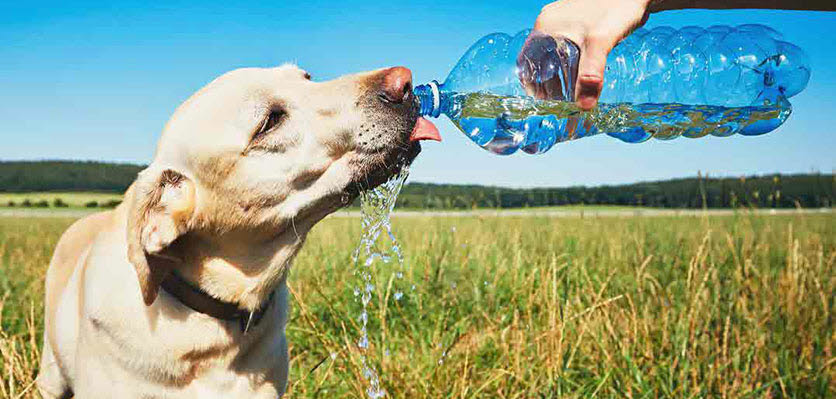
Bushfire season is well and truly upon us and smoke hazards can impact not just our health, but also may be harmful to our pets. Here is some information to help you understand the potential impacts of smoke hazards and some tips to mitigate risk to you and your pets during bushfires.
Impacts of smoke on pets
Smoke and ash from fires can impede pet health in a variety of ways and it is important to understand so we can keep them healthy and safe. Toxins in the ash can accumulate on the coat or may collect on your pet’s paws.
The ash may be a direct irritant to the skin and can even be ingested when they groom themselves. Cats, in particular, will groom themselves making them more vulnerable to toxins directly entering the body.
Ingestion can also occur when your pet eats contaminated food. It is not uncommon for pets to breathe in smoke and ash leading to respiratory irritation and problems such as asthma. Some pets will get irritated eyes from smoke and ash.
Warning signs
Smoke can irritate and be harmful to your pet in many ways including:
- Increased persistent coughing
- Increased breathing effort
- Irritated eyes
- Itchy skin
- Decreased energy
- Decreased appetite
If you notice any of the following warning signs, contact your local veterinarian immediately.
Who’s most at risk?
Some pets are particularly vulnerable to the adverse impacts of smoke hazards:
- Brachycephalic (flat-faced) breeds have an already compromised ability to breathe adequality due to their short snouts.
- Older animals, particularly those with pre-existing conditions; those with skin, cardiac or respiratory conditions.
- Outdoor pets.
What can I do to protect my pets?
- Keep pets inside and cool, particularly brachycephalic breeds such as French bulldogs or Persian cats.
- Bring caged pets such as birds, rabbits or guinea pigs inside to reduce risk of smoke inhalation.
- Exercise pets in areas unaffected by smoke; consider indoor activities.
- Do not leave food/water bowls outdoors. Clean and replenish daily to avoid ash debris ingestion.
- Groom pets manually and wash them with pet shampoo to avoid overgrooming and ash ingestion.
- Wipe your pets’ paws if they have been outside to remove ash material.
- Close the windows and turn on the air-conditioning. Try not to leave pets home alone for long periods of time with the windows open.
Keep pets inside
Keep pets inside as much as possible during periods of compromised air quality. Pets will still need exercise but consider lowering the intensity of those dog walks. If you can find alternatives to outdoor exercise, consider indoor activities like a treasure hunt dogs or playtime with a light beam for cats.
Grooming
Animals can ingest ash through grooming. They may overgroom to remove ash and smoke. Help prevent irritation by washing your pet with pet approved shampoos. Use brushes regularly to give them daily relief.
